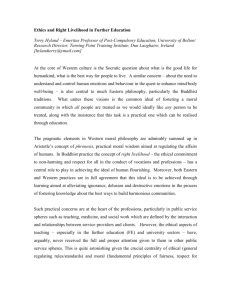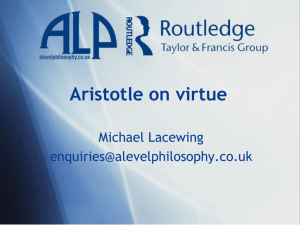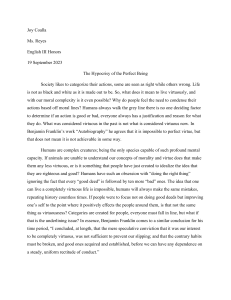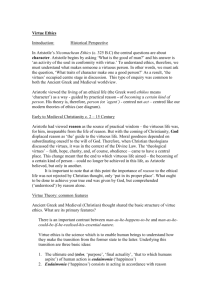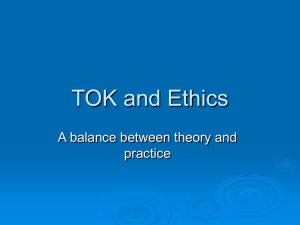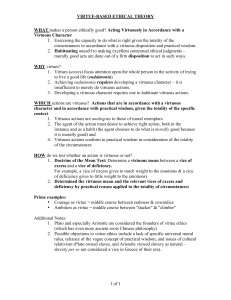Aristotle on Moral Virtue and Happiness
advertisement
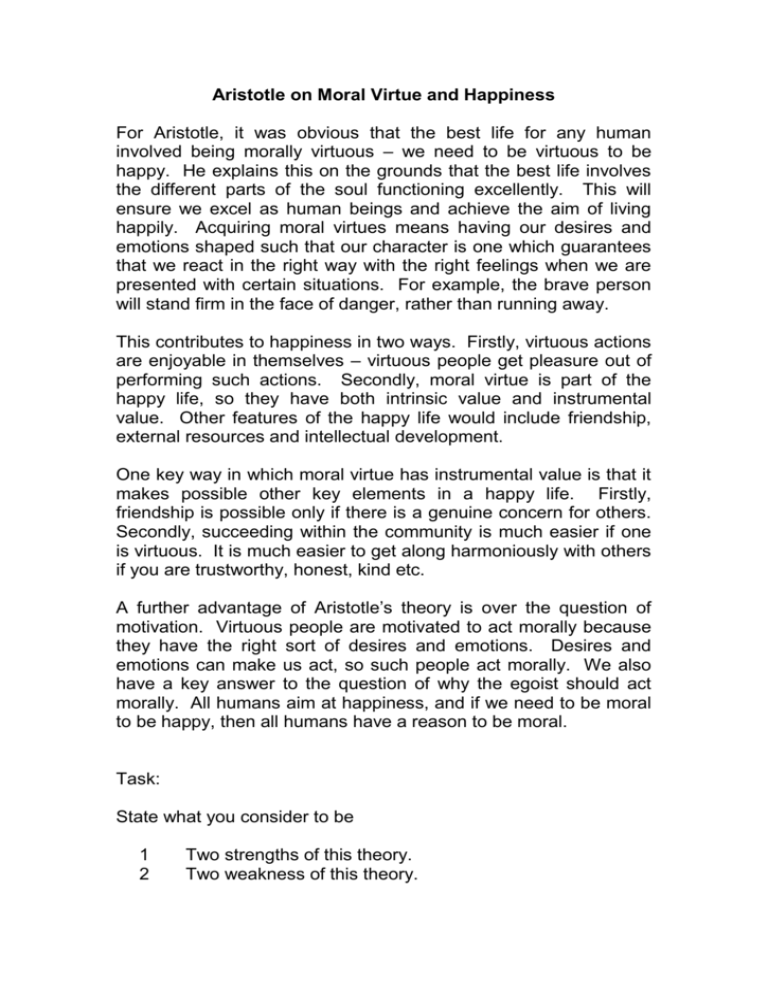
Aristotle on Moral Virtue and Happiness For Aristotle, it was obvious that the best life for any human involved being morally virtuous – we need to be virtuous to be happy. He explains this on the grounds that the best life involves the different parts of the soul functioning excellently. This will ensure we excel as human beings and achieve the aim of living happily. Acquiring moral virtues means having our desires and emotions shaped such that our character is one which guarantees that we react in the right way with the right feelings when we are presented with certain situations. For example, the brave person will stand firm in the face of danger, rather than running away. This contributes to happiness in two ways. Firstly, virtuous actions are enjoyable in themselves – virtuous people get pleasure out of performing such actions. Secondly, moral virtue is part of the happy life, so they have both intrinsic value and instrumental value. Other features of the happy life would include friendship, external resources and intellectual development. One key way in which moral virtue has instrumental value is that it makes possible other key elements in a happy life. Firstly, friendship is possible only if there is a genuine concern for others. Secondly, succeeding within the community is much easier if one is virtuous. It is much easier to get along harmoniously with others if you are trustworthy, honest, kind etc. A further advantage of Aristotle’s theory is over the question of motivation. Virtuous people are motivated to act morally because they have the right sort of desires and emotions. Desires and emotions can make us act, so such people act morally. We also have a key answer to the question of why the egoist should act morally. All humans aim at happiness, and if we need to be moral to be happy, then all humans have a reason to be moral. Task: State what you consider to be 1 2 Two strengths of this theory. Two weakness of this theory.
